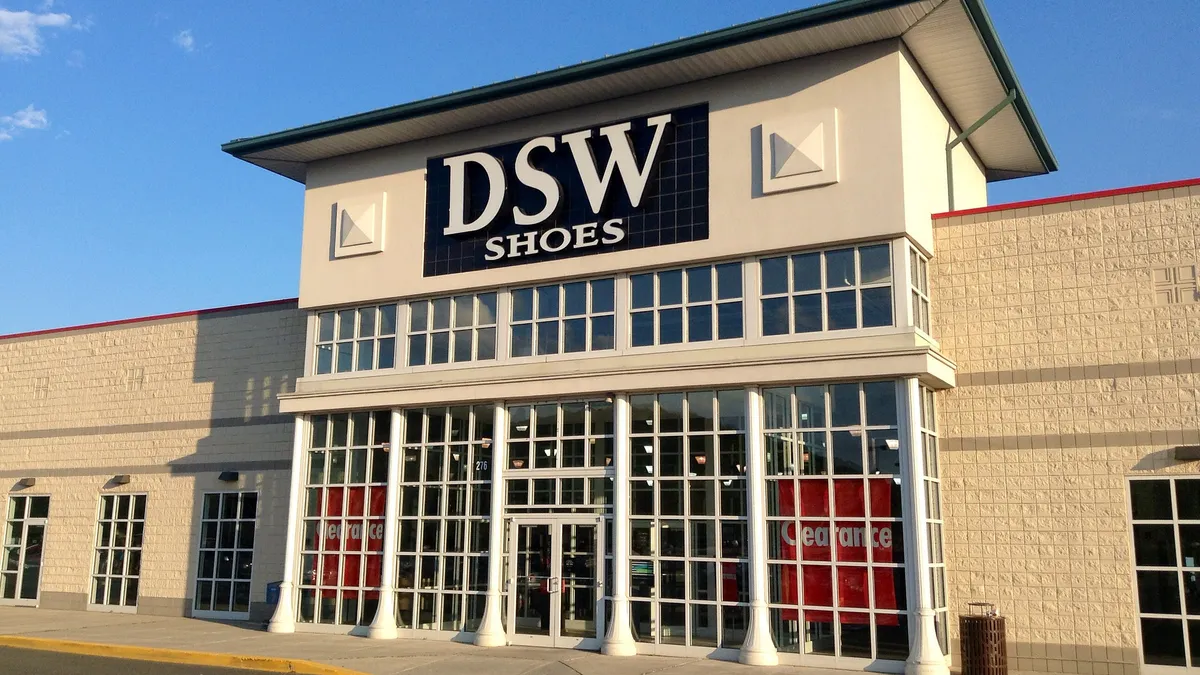Dive Brief:
-
With consumers heading back to stores, Designer Brands on Tuesday reported that third quarter net sales rose 30.7% year over year to $853.5 million, an 8.1% decrease from 2019.
-
Store comps rose 40.8%. As of Oct. 30, the footwear retailer runs 515 U.S. and 144 Canadian stores, having opened four new U.S. stores and one in Canada, and closed four U.S. stores during the quarter.
-
The DSW parent swung back to black in the period, from last year's $40.6 million net loss to net income of $80.2 million, up from $43.5 million in 2019.
Dive Insight:
Despite grappling with the supply chain constraints of the moment, Designer Brands executives said the company has momentum going into the fourth quarter, and CEO Roger Rawlins noted that the company set a record for demand in a single day in a single week, namely Black Friday.
The company is chasing market share in less fashion-dependent segments like kids and athleisure, citing NPD research showing athleisure growth in July and August that from 2019 outpaced the market by 26 percentage points. During the five-day Black Friday shopping weekend, digital and store comps were up at DSW, where demand rose 8% compared to 2019, Rawlins said told analysts on Tuesday.
To gain market share and profits, the company is developing more private brands, he also said.
But the company is also shouldering a burden from its 2018 acquisition of Vince Camuto, whose 40% sales decline from 2019 dragged down the company's two-year performance, according to William Blair analyst Dylan Carden.
"So it is fair to categorize sales as light, particularly considering strength in the occasion and seasonal product lines, and a stronger Back to School period as called out by peers," Carden said in emailed comments. "What is more, on a two-year stacked basis, sales trends took a step back (down 1% at DSW versus up 7% in the second quarter), which is more damaging in a demand environment that seems to have improved for most through the year. We would not rule out the possibility that the retailer had more limited access to inventory, starting the quarter with inventory down 19% to 2019."
The company pulled off a robust gross profit bounce, to a record $313.6 million in the period from $165.7 million last year — a record 36.7% of net sales compared to 25.4% last year and 29.3% in 2019. Markdowns were way down compared to 2019, which executives characterized as a highly promotional year. But Designer Brands will have to make inroads in its private label strategy and conquer its supply chain for that to last, according to William Blair.
"[W]hile we are encouraged by gross margin performance, we do not believe it is sustainable, though the company could likely hold onto some gains around private label penetration, where again timing on new product delivery will be key," Carden said.














